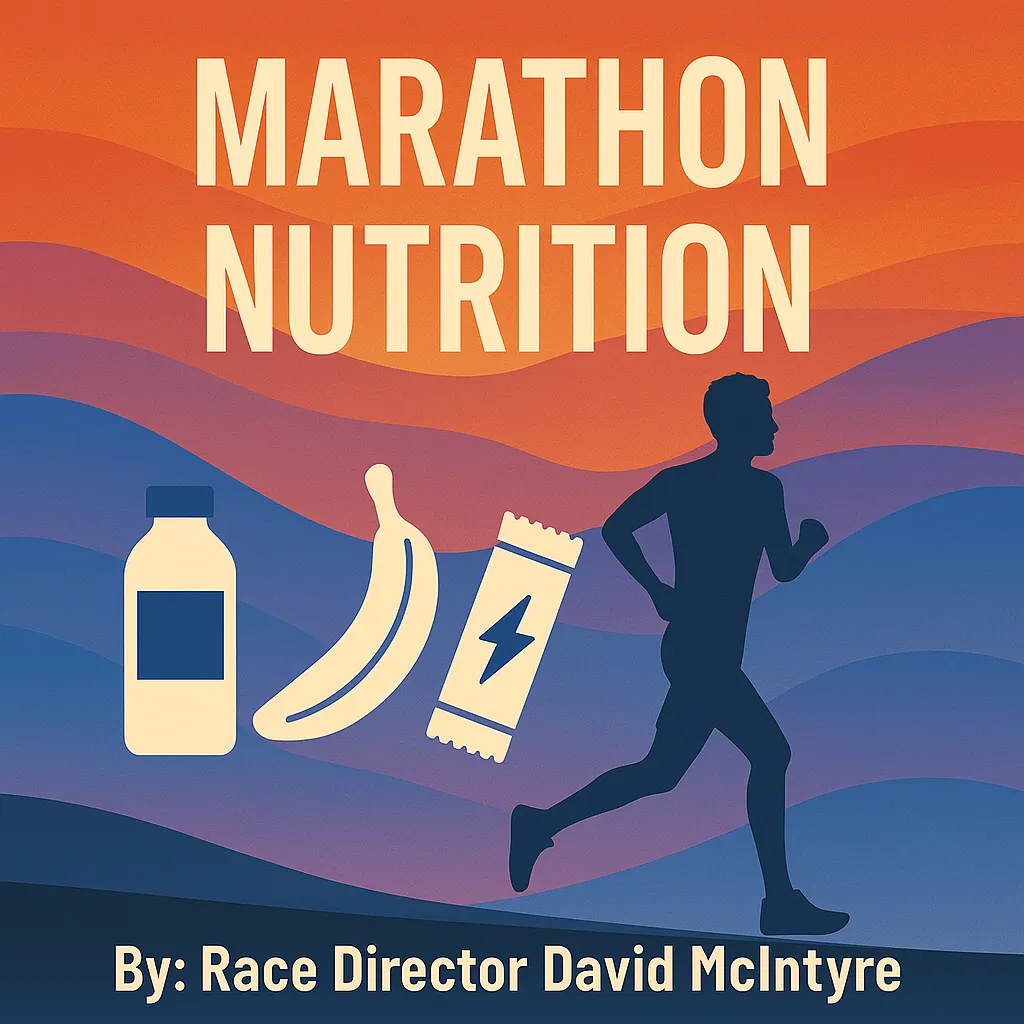
Marathon Nutrition
5 Tips for Marathon Nutrition from David McIntyre
Action Items
[ ] Practice consistent carbohydrate intake, adequate hydration, lean protein, and healthy fats while prioritizing recovery nutrition.
[ ] Consume carbohydrates as the main fuel source, especially during training and on race day, including complex carbs like oatmeal and brown rice.
[ ] Include lean protein sources like fish, poultry, beans, and lentils to support muscle repair and growth.
[ ] Consume healthy fats from sources like olive oil, avocado, and nuts.
[ ] Focus on replenishing glycogen stores after each run by consuming carbohydrates and protein within a few hours, considering options like chocolate milk and protein shakes.
[ ] Eat a familiar carb-heavy meal 3-4 hours before the race, avoiding excessive fiber, fat, and protein.
[ ] Choose easily digestible foods like sports drinks, gels, chews, bars, as well as familiar options like bananas and jam sandwiches on race day.
[ ] Limit high fiber, high fat, and high protein meals during the run.
[ ] Increase carbohydrate intake moderately in the days leading up to the race (cup loading).
[ ] Include fruits and vegetables for vitamins, minerals, and antioxidants.
[ ] Consider including beetroot in your diet, as it may help improve running performance.
y
Transcript
Edit transcript
Keywords
Speakers
Speaker 1 (99%), Speaker 2 (1%)
Good Good evening, friends. This is your friend David here, and this evening I'm going to have a nice salad with a nice hot green tea. And I thought at this time I like to share some tips on nutrition for marathoners. Oh, that's so good for marathoners Nutrition. Focus on consistent carbohydrate intake, adequate hydration, lean protein and healthy fats while practicing recovery. Nutrition after each run, prioritize familiar foods on race day to minimize stomach upset.
Tip number one, hydration, drink plenty of fluids, especially water, throughout the day and before, during and after each runs.
Tip number two, carbohydrates, make carbohydrates the main fuel source, especially during training and on race day, include complex carbs like oatmeal and brown rice.
Tip number three, protein include lean protein sources like fish, poultry, beans and lentils to support muscle repair and growth.
Tip number four, healthy fats. Consume healthy fats from sources like olive oil and avocado and nuts and five recovery nutrition focused on replenishing glycogen stores after each run by consuming carbohydrates and protein within a few hours. Consider chocolate milk and protein shakes.
Get some additional tips as well. Additional tip.
Number one, pre race meal, eat a familiar carb, heavy meal three to four hours before your race, avoiding excessive fiber, fat and protein.
Number two, race day food, choose easily digestible foods like sport drinks, gels and Chews and bars, as well as familiar options like bananas and jam sandwiches.
Tip number three, avoid limit, high fiber, high fat and high protein meals during the run.
Additional Tip number four, cup loading, increase carbohydrates intake moderately in the days leading up to the race.
Number five, fruits and vegetables include fruits and vegetables for vitamins, minerals and antioxidants. And lastly, tip number additional six, beetroot, consider including beetroot in your diet, as it may help improve running performance.
I hope all these tips help you with your training and your racing season that's coming up and got to stay fueled really good. And this salad is looking really good, so I'm going to take a quick bite here.